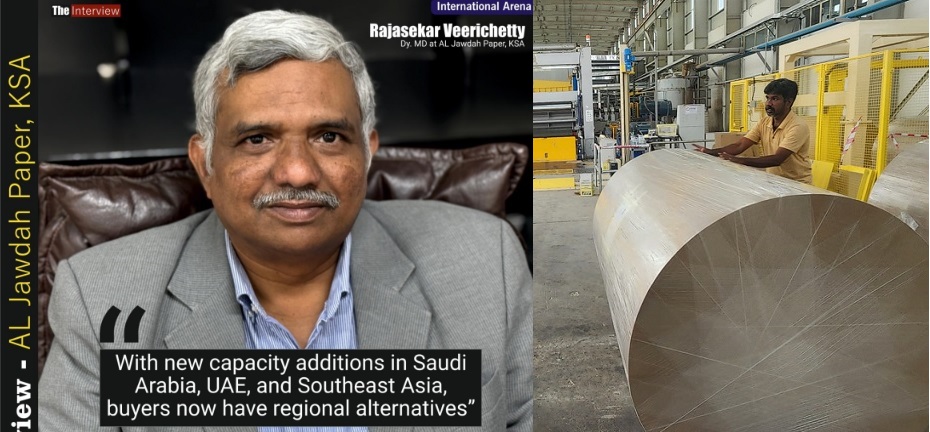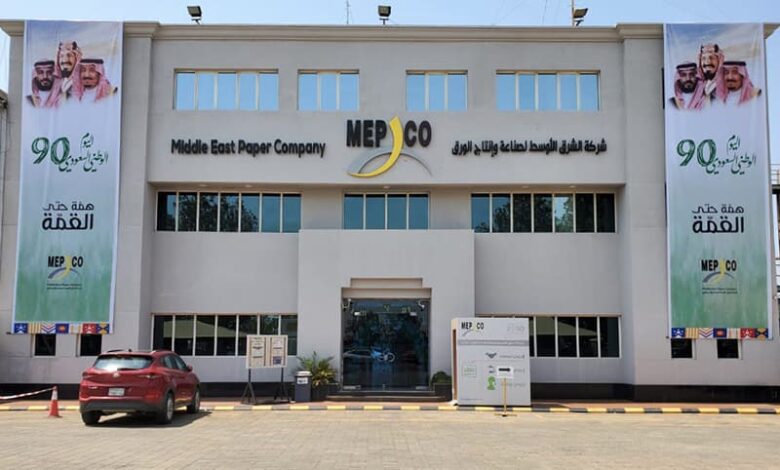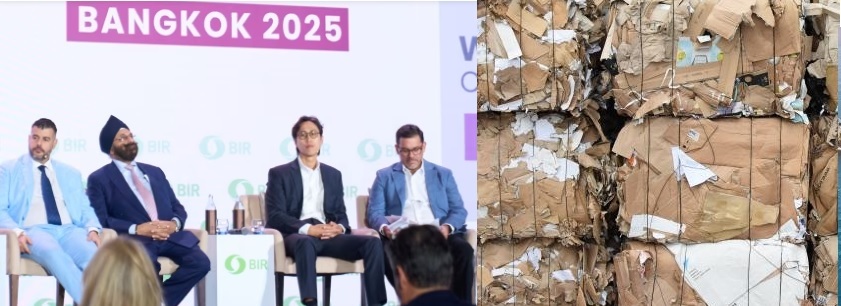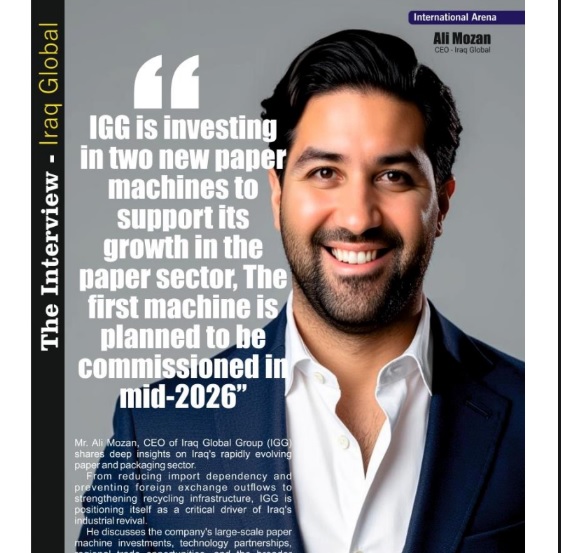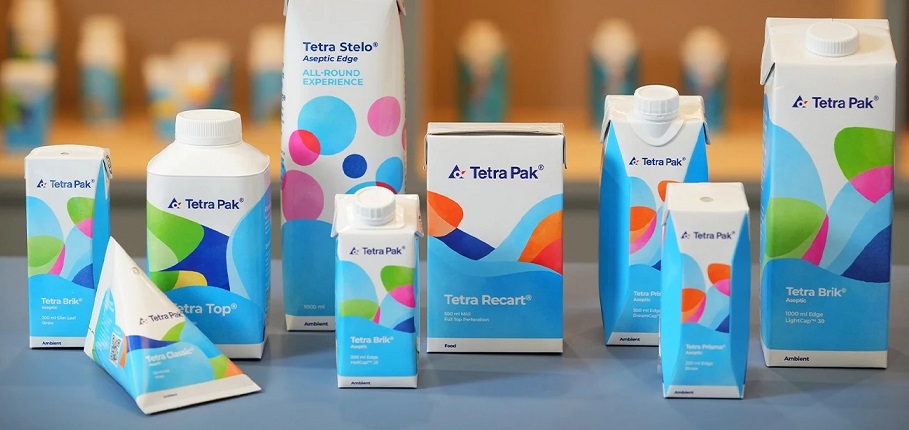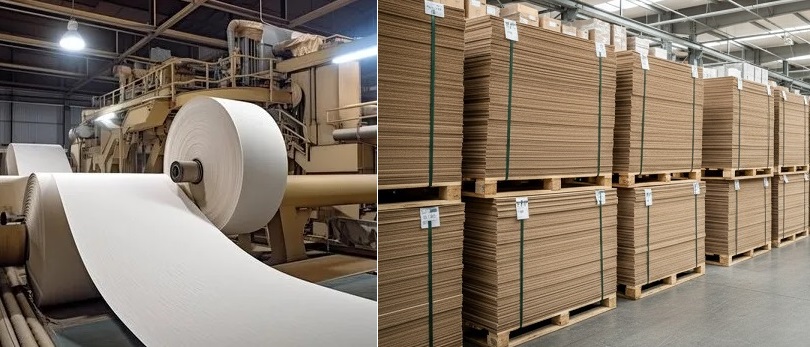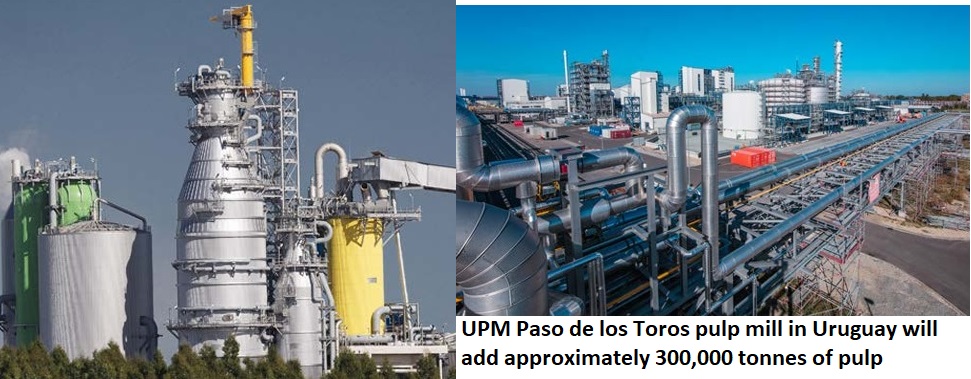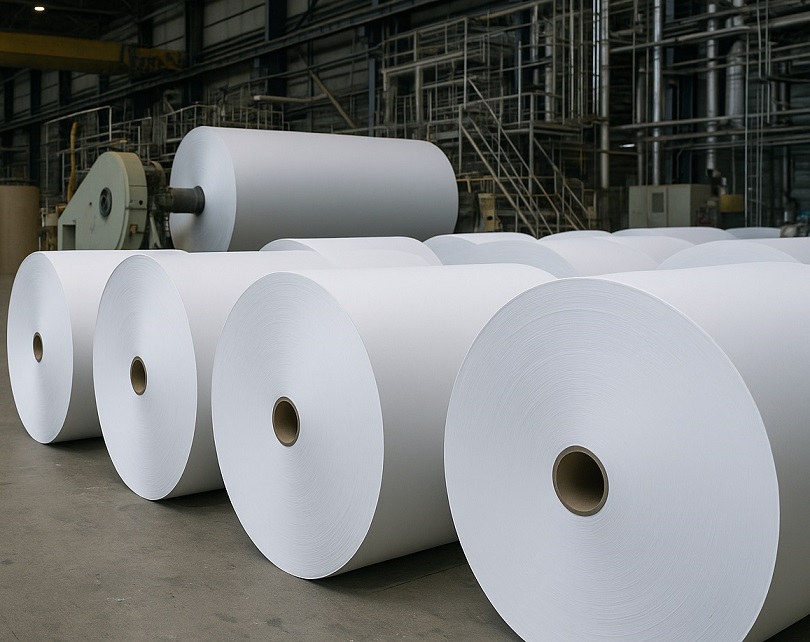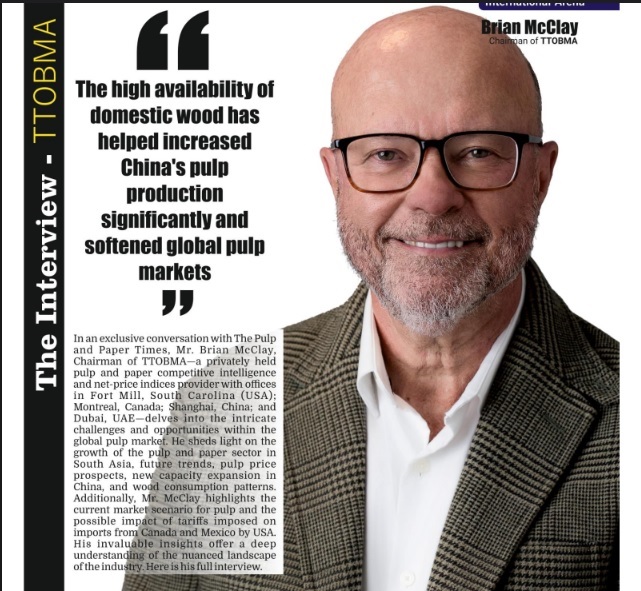"There is always going to be an excess of recovered fibre on the UK market": Andrew Large, Director General, CPI (UK)
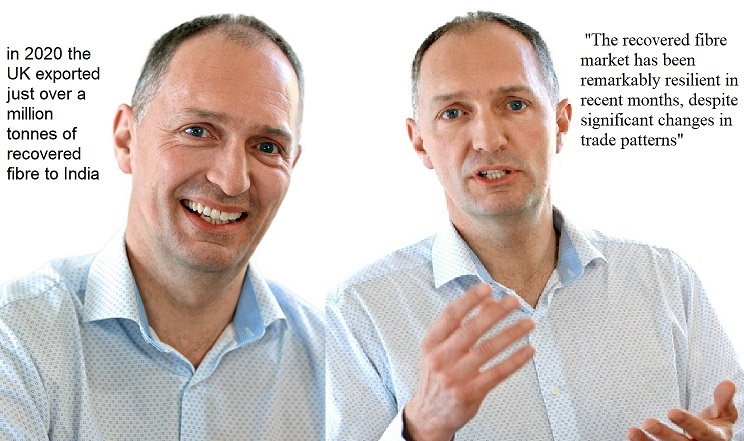
"There is always going to be an excess of recovered fibre on the UK market": Andrew Large, Director General - CPI (UK)
-World moves to a net-zero circular and bio-based economy, all countries need to invest in their collection and sorting infrastructure to ensure that they maximise their recycling rates.
The Confederation of Paper Industries (CPI) is the leading trade association representing the UK's Paper-based Industries, comprising paper and board manufacturers and converters, corrugated packaging producers, makers of soft tissue papers, and collectors of paper for recycling. CPI unifies the UK’s Paper-based Industries behind the promotion of paper's intrinsic value as a uniquely renewable and recyclable resource. We aim to enhance the industry’s competitiveness by advocating an appropriate legislative and regulatory regime in the UK, EU and globally, and also by sharing best practices within the CPI membership.
CPI represents 81 Member companies, from an industry with an aggregate annual turnover of £12.1 billion, 62,000 employees, which supports a further 100,000 jobs in the wider economy. Our Members range in size from large multi-national organisations with multiple sites in the UK, to single site SMEs. Recently, The Pulp and Paper Times interacts with Mr. Andrew Large, Director-General - The Confederation of Paper Industries (CPI) (UK) over the fibre market issue with India. Here is his view:
July 2021 | The Pulp and Paper Times:
Q: Recovered paper (used paper) is the most important raw material for the UK paper and board industry, representing over 70% of the fiber used to manufacture paper and board in the UK in 2019. But COVID 19 pandemic has drastically dropped the collection of waste paper thus resulting in a steep surge in finished paper price. How UK Corrugators and Converters are absorbing these hikes and coordinating with Paper Manufacturers on price issues?
CPI operates in a competitive marketplace and its activities are governed by UK and EU Competition Law. We do not comment publicly or privately on price levels or on industry coordination.
Q: Recently, The government of India has come up with norms for the enforcement of 'rules of origin' provisions for allowing the preferential rate of customs duties on products imported under free trade agreements. The primary aim of such a policy is to stop the unauthorized benefits and claims of Customs benefit under the respective Trade Agreements like FTA / PTA / CECA / CEPA). How do you evaluate this kind of imposition particularly for paper trade? Will this rule be beneficial to the paper industry?
Rules of Origin are a standard part of most preferential trade agreements. They act to ensure that the benefits of a reduced or zero tariff rate are only available to products genuinely produced in those countries that are parties to the agreement. In my view, the impact of a such provisions is broadly neutral for the paper industry.
Q: With the ban on imported waste paper in China effective from January 2021, How is the world going to be affected by this major shift? Especially a country where the rate of recovery is low like India, what will be the major impact?
The recovered fibre market has been remarkably resilient in recent months, despite significant changes in trade patterns. The UK has a significant trade deficit in goods, which translates to a trade deficit in transit packaging, so there is always going to be an excess of recovered fibre on the UK market that needs to be collected and then exported for reprocessing. As the world moves to a net-zero circular and bio-based economy, all countries need to invest in their collection and sorting infrastructure to ensure that they maximise their recycling rates.
Q: Please show some light on India and UK paper trade figures like Export and Import of Paper?
In 2020, The UK exported 28,825 tonnes of paper to India. In the same year India exported nearly 50,000 tonnes of paper to the UK. Most of the UK imports were graphic and specialty papers, whereas most of the Indian imports were newsprint. Overall volumes however are very modest in comparison to the consumption of both countries.
Concerning recovered fibre, in 2020 the UK exported just over a million tonnes of recovered fibre to India, with under 50 tonnes being shipped from India to the UK in the same year.
Q: Major Paper manufacturers in UK and Europe are going to increase their paper price by 8 to 15 % effective from July 2021, what the reason behind this hike is, and how the importers' countries will take this increased price to their customers?
CPI operates in a competitive marketplace and its activities are governed by UK and EU Competition Law. We do not comment publicly or privately on price levels or on industry coordination.
Q: Is the digital revolution making paper obsolete? Digital activities impacting paper consumption especially in the graphic paper segment. What is CPI’s stand on this?
No, paper is not obsolete. CPI supports a campaigning group called Two Sides, which works across the globe to promote the benefits of graphic paper and its products. https://www.twosides.info/
Q: How does CPI evaluate the Indian Paper Quality on the ‘Responsibly-sourced paper’ parameter?
I am afraid that I simply do not know sufficient about the Indian Paper Industry to make a credible answer to either of these questions. I would however say that the total lifecycle analysis of all paper products is becoming increasingly important, and on issues such as carbon emissions, recycling and substitution of fossil based products paper has a strong story to tell globally. However, the industry can always improve and make a stronger case that paper is the material of choice for communications, hygiene and packaging solutions.
Q: To understand CPI’s view on Anti-dumping Duty levied by any country in order to protect its domestic manufacturers, Up to what extent do you find it justify for the smooth global trade operation in the paper segment?
CPI supports the concept of trade remedies being available for domestic industries to be able to seek redress against unfairly and uneconomically traded imports. Without internationally agreed mechanisms for trade remedies, including the WTO, then political considerations will dominate trade, which is to the detriment of all countries.
Q: Post Pandemic, the export price of OCC / recycled fiber is touching to $ 300 per ton to Indian port, some of the waste paper dealers association in India accusing the Europe and US recyclers for increasing the artificial price increase to exploit the current situation. How do you support this claim?
CPI operates in a competitive marketplace and its activities are governed by UK and EU Competition Law. We do not comment publicly or privately on price levels or on industry coordination.
Q: It has come to our knowledge that the European Waste Paper Suppliers are not sending the same Waste Papers to the Indian Paper Mills which are being consumed by European Paper Mills. Is this claim right? If yes, What is the reason behind this diversion?
CPI cannot comment on particular market-related issues. However, the recovered fibre market is global, with a range of fibres available globally at a range of prices. There is no central European authority that decides what quality of materials are sent to which markets. It depends on the contracts that buyers and sellers have freely entered into.
Q: What new trends in Paper Mill Operation does CPI see in European Paper Mills which will change the dynamic of paper mill operations worldwide?
Q: What commitments has CPI committed to the world which are to be completed by 2030? Where is CPI up to now to fulfill these commitments?
In answer to both these questions I would like to focus on two particular issues. The first is climate change and the statutory UK target of reducing carbon emissions to net-zero. The second is the need to improve recycling and the quality of input raw materials into the papermaking process.
For the first of these challenges there is the drive towards energy efficiency and then the move away from fossil fuels to electrification or hydrogen as a source of energy and heat. These will require very substantial investment and will also demand new skills in energy management and process control.
The second challenge requires the industry to work with other stakeholders, especially local government. The industry needs to improve both the quantity and quality of materials collected so that we contribute the maximum possible to the circular economy. These moves would also improve the quality of the recovered fibre that the UK sells on global markets. CPI has recently published recyclability guidelines that aim to minimise the volumes of unrecyclable materials entering the paper recycling stream. We want designers to create future packaging with lower percentages of contaminants so that we can maintain the quality and value of our materials throughout the supply chain.
Web Title: There is always going to be an excess of recovered fibre on the UK market : Andrew Large Director General CPI UK




 Join WhatsApp Group
Join WhatsApp Group Join Telegram Channel
Join Telegram Channel Join YouTube Channel
Join YouTube Channel Join Job Channel (View | Submit Jobs)
Join Job Channel (View | Submit Jobs) Join Buy Sell Channel (Free to Submit)
Join Buy Sell Channel (Free to Submit) Paper News Headlines Channel (Free to read)
Paper News Headlines Channel (Free to read)


